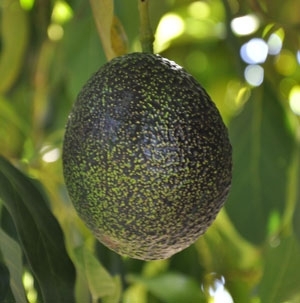
A More Water Efficient Avocado?
Here's a pretty technical report of water efficiency in avocado - the amount of water it takes to make fruit. It looks like there might be some varieties that could produce more fruit with less water. It's a promising start to selecting a tree that could produce under the increasing drought conditions found in avocado growing areas.
Evaluation of leaf carbon isotopes and functional traits in avocado reveals water-use efficient cultivars
Plant water-use efficiency (WUE) describes the ratio of carbon gain to water loss during photosynthesis. It has been shown that WUE varies among crop genotypes, and crops with high WUE can increase agricultural production in the face of finite water supply. We used measures of leaf carbon isotopic composition to compare WUE among 24 cultivars of Persea americana Mill (avocado) to determine genotypic variability in WUE, identify potentially efficient cultivars, and to better understand how breeding for yield and fruit quality has affected WUE. To validate carbon isotope measurements, we also measured leaf photosynthetic gas exchange of water and carbon, and leaf and stem functional traits of cultivars with the highest and lowest carbon isotope composition to quantify actual WUE ranges during photosynthesis. Our results indicate large variation in WUE among cultivars and coordination among functional traits that structure trade-offs in water loss and carbon gain. Identifying cultivars of subtropical tree crops that are efficient in terms of water use is critical for maintaining a high level of food production under limited water supply. Plant functional traits, including carbon isotopes, appear to be an effective tool for identifying species or genotypes with particular carbon and water economies in managed ecosystems.
Read the article:
https://www.sciencedirect.com/science/article/pii/S0167880918301828

avocado fruit
